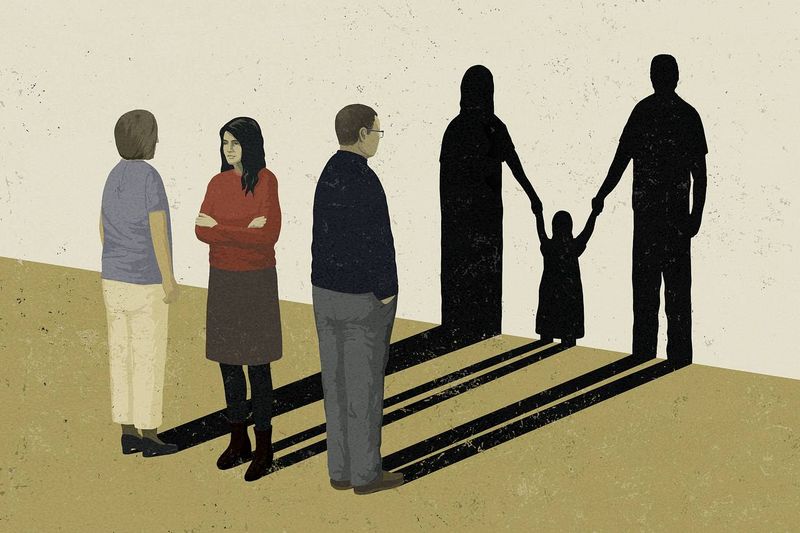17 Phrases Boomer Parents Say That Make Their Adult Kids Shut Down Inside
Words meant to help can sometimes sting—especially when they come from the people who raised us. Boomer parents, with all their stories and good intentions, seem to have a signature script, don’t they? Sometimes those classic lines, said out of habit or love, land with a thud for adult kids like me.
It’s wild how a single phrase can transport you back to your teenage bedroom, feeling invisible or misunderstood—even when you’re fully grown and paying your own bills. The gap between what was meant and what’s felt can be massive, and it’s honestly so validating to call it out.
We all know they didn’t get a handbook for this parenting gig, but awareness is the first step toward breaking old cycles. Let’s get real and unpack the sayings that still echo in our heads long after the conversation is over.
1. The Comparison Game: “You think you have it hard?”

My mom used to drop this one whenever I mentioned work stress, like her struggles set the gold standard for hardship. It never felt like comfort—just a shut-down button.
When someone compares your pain to theirs, it’s like being told you’re not allowed to feel overwhelmed unless you’ve got the exact same scars. Suddenly you stop sharing, because why bother? There’s no room for your experience.
What’s wild is, empathy doesn’t mean tallying up suffering. Sometimes we just want a simple, “That sounds rough.” The scoreboard mentality makes conversations feel like competitions, and honestly, who needs more of that?
2. The Guilt Trip Express: “We gave you everything.”

There’s something about this line that feels less like love and more like an invoice. Ever get the sense that your achievements are just receipts for their sacrifices?
Instead of making you feel cherished, it piles on guilt. Gratitude is real, but it shouldn’t be a currency for affection or respect. Love shouldn’t have strings attached, yet somehow, this phrase leaves you tallying debts you never signed up for.
It’s exhausting when appreciation is never enough. Eventually, you start holding back your wins (and your struggles), just so you don’t have to pay for them in guilt later. Not exactly a recipe for closeness.
3. Sensitive Is Not a Sin: “You’re too sensitive.”

Has anyone else practically memorized this line from childhood? It’s like a stamp on your forehead: “Your emotions are inconvenient.”
Every time I heard it, I got a little quieter. Feelings are messy, sure, but brushing them off just teaches you to bottle them up. After a while, you question if you’re allowed to react at all, and that’s a lonely place to be.
Real talk—feeling deeply isn’t a flaw. Sometimes, being called “too sensitive” just means you care. And honestly, the world could use more of that, not less.
4. The Gratitude Checklist: “You should be grateful.”

This one hits different when you’re already feeling low. It’s like being told your struggles don’t count because you have a roof over your head.
Gratitude is important, sure, but it doesn’t erase pain. Sometimes you can be thankful and hurting at the same time. When parents push this phrase, it feels like your emotional reality is being erased.
Instead of feeling heard, you end up wondering if you’re just being ungrateful for needing support. Spoiler: You can appreciate what you have and still need a little understanding.
5. Stop the Mind Police: “You’re just overthinking it.”

Every time I’ve heard this, it’s like someone put a lid on my brain. Processing isn’t a crime, and some of us just need time to work through things.
Being told you’re “overthinking” is code for, “I don’t want to hear about it anymore.” The worst part? You start doubting your own instincts, wondering if you really are making things up. It’s not fair.
Talking things out can be healthy. What we really want is someone to listen, not someone to tell us to change how our brains work. That’s not too much to ask, right?
6. Toughen Up, But At What Cost?: “You need to toughen up.”

Let’s be real, most of us did “toughen up.” That’s why we don’t talk about hard stuff anymore.
Being told to toughen up feels like an order to stop showing pain. You learn to put on armor, not because you want to, but because that’s what gets you through the conversation in one piece.
Here’s the thing: Armor keeps out support, too. It’s hard to be close to someone when you’re both playing emotional dodgeball.
7. Memory Wars: “That’s not how it happened.”

Ever have a memory you were sure about, only for a parent to rewrite it in front of you? It’s like emotional gaslighting, even if they don’t mean it that way.
There’s nothing more invalidating than having your experience erased. When your childhood stories get edited, you stop trusting your own memories—and sometimes, even your feelings.
Nobody’s memory is perfect. Still, respect for your recollection can go a long way toward healing old wounds.
8. The Blanket Excuse: “It was for your own good.”

This phrase is the ultimate catch-all. It turns every questionable choice into a noble sacrifice.
Sometimes, what was “for your own good” actually caused harm. When you try to talk about it, you’re told it was all necessary—case closed. That’s not how healing works.
Admitting the impact of past actions doesn’t cancel out good intentions. But using this line as a shield just buries the conversation even deeper.
9. The Best They Could, Still Hurt: “I did the best I could.”

“I did the best I could” is a classic for dodging responsibility. It’s true, nobody gets a perfect score at parenting, but that doesn’t mean there’s no room for apology.
Sometimes, parents did their best and we still got hurt. Both can be true. When they use this phrase as a period at the end of the story, it shuts down any chance of real conversation.
A little acknowledgment goes a long way. Most of us just want to hear, “I’m sorry you felt that way.”
10. History Doesn’t Erase Impact: “That’s just how things were back then.”

This one feels like a get-out-of-jail-free card for every mistake that happened before you could Google your feelings.
Time and context matter, but they don’t erase what people felt. When parents explain things away by blaming “the times,” it can sound like an excuse, not an explanation.
Owning the past doesn’t mean blaming yourself forever. It just means understanding that context isn’t a free pass for hurt feelings.
11. The “Why Didn’t You?” Trap: “Why didn’t you say something sooner?”

Anyone else get this after finally speaking up? It’s like being blamed for holding onto pain you couldn’t safely share before.
Sometimes, you didn’t say something because you were scared or didn’t have the words. Other times, you did try—and got ignored. Either way, it hurts to have your timing questioned instead of your feelings acknowledged.
Opening up is hard. Getting a question like this at the finish line shuts the gate you just worked up the nerve to open.
12. Avoidance Olympics: “Don’t bring up the past.”

Bringing up old wounds isn’t about blame—it’s about healing. But this line is like a wall built mid-sentence.
Parents might feel uncomfortable talking about the past, but silence doesn’t erase what happened. For adult kids, it feels like a denial of reality.
When your history is off-limits, you end up carrying it alone. Real connection comes from facing things together, not pretending they never happened.
13. Experience Erased: “I never treated you like that.”

Being told your memory is wrong is one thing, but having your whole experience denied is another level. It’s like your pain never even happened.
Whether it’s intentional or not, this line wipes away your reality. That’s a recipe for resentment, not reconciliation. Validation doesn’t mean agreeing with every detail—it just means listening and caring.
Everyone’s experience is their own. Respecting that truth is the only way forward.
14. Minimizing Marathon: “You’re making a big deal out of nothing.”

Ugh, the sting of having your feelings labeled “nothing.” It’s like screaming into a pillow—nobody hears you.
Big or small, feelings exist for a reason. When they’re brushed off, you start believing you’re overreacting, when maybe you’re just normal. That’s a lonely, crazy-making place to be.
Small things matter, too. Being minimized over and over makes you pull back, and suddenly, sharing doesn’t feel safe anymore.
15. Fine Isn’t the Finish Line: “You turned out fine, didn’t you?”

Surviving isn’t the same as thriving. “Fine” is the bare minimum, not a badge of honor.
When parents use this line, it feels like they’re shutting down any talk about what could have been better. You start to wonder if your struggles even matter, or if you should just be grateful you made it out okay.
There’s more to life than just getting by. We all deserve space to talk about what’s still hard, no matter how “fine” things turned out.
16. Anti-Therapy Flex: “Back in my day, we didn’t have therapy.”

There’s a weird pride in this line, like not getting mental health support makes you tougher. But honestly, it just means a lot of people suffered in silence.
Therapy isn’t a sign of weakness—it’s a tool for getting better. Hearing this phrase can make you feel ashamed for wanting help or for struggling in the first place.
Support looks different now, and that’s a good thing. Needing help isn’t a character flaw.
17. Empathy Roadblock: “You’ll understand when you have kids.”

This one always feels like the end of the conversation. Instead of finding common ground, you’re told you’re missing the “parent card.”
Empathy shouldn’t require identical experience to feel real. It’s frustrating when understanding is dangled like a reward you’re not allowed to have until you hit a certain milestone.
Open dialogue means meeting each other where we are, not waiting for someone else to catch up. That’s how real connection happens.







